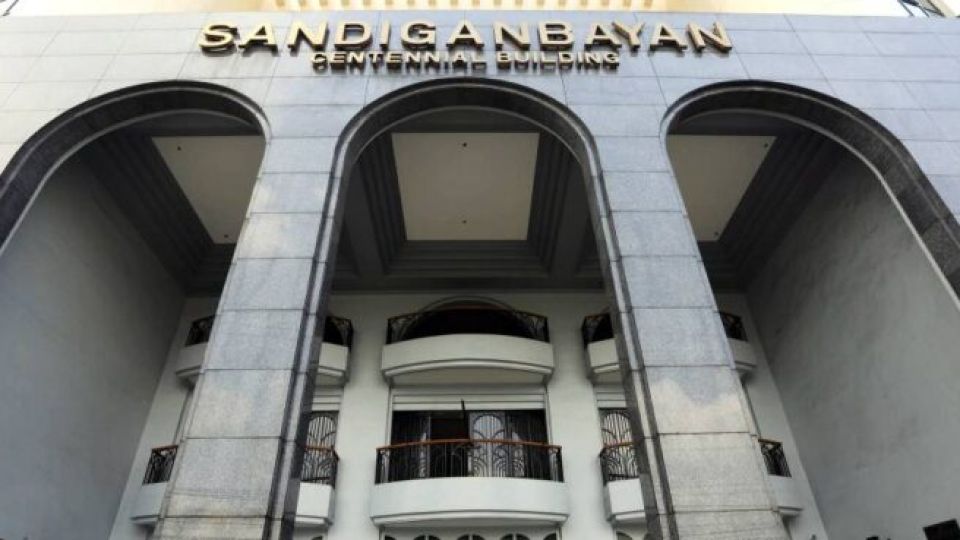October 10, 2024
MANILA – The Sandiganbayan has dismissed a P276-million civil case against the estate of former President Ferdinand Marcos Sr., in which the former first couple was accused of using their associate Roman Cruz in purchasing parcels of land supposedly through ill-gotten wealth.
In a resolution dated October 4, the Sandiganbayan’s Second Division granted the motion made by the Marcos estate — particularly former first lady Imelda Marcos and incumbent President Ferdinand Marcos Jr. — to dismiss Civil Case No. 006 due to inordinate delay.
According to the Marcoses, allegations against the estate of former President Marcos can no longer be substantiated because the case was dismissed by Sandiganbayan in October 2012, while the Supreme Court eventually added that the Marcos estate is excluded from the Bill of Particulars previously filed.
“The allegations that merited the filing of the Bill of Particulars are paragraphs 9 and 12 (a), (b), (c), (d), and (e) of the Expanded Complaint. On December 7, 2020, the Supreme Court partially granted the petition and said that the Estate of Marcos is excluded from paragraphs 9 and 12 (a), (b), (c), and (e) without prejudice to the standing valid effect of paragraph 12(d) of the Expanded Complaint,” Sandiganbayan said.
“The plaintiff pointed out that the Pinugay Estate alluded to in paragraph 12(d) was not included in Annex A of the Complaint. Thus, it appears that all allegations against the Marcoses were struck down. There is no more reason to proceed against them. The Court finds merit in the defendants’ argument that their constitutional right to a speedy disposition of the case has been violated,” it added.
Sandiganbayan said that under Article III, Section 16 of the 1987 Constitution, all persons have the right to “a speedy disposition of their cases before all judicial, quasi-judicial, or administrative bodies.”
Such a provision applies, the anti-graft court said, when considering that the length of delay is over 30 years.
“The burden is not upon them to ensure that the wheels of justice continue to turn or to expedite the pre-trial and start the trial within the bounds of reasonable timeliness,” the anti-graft court said.
Furthermore, Sandiganbayan said the defendants, the heirs of former President Marcos, have been prejudiced because of this delay.
“As regards prejudice, it is unquestionable that the defendants have already been prejudiced by the inordinate delay. The fact that the case was filed against the defendants and pending before this Court where they are made to defend themselves, secure services of paid counsel, and spend for their bail is enough trouble and prejudice to them,” Sandiganbayan noted.
“They can no longer be afforded a fair trial since the witnesses may have already died and the documentary evidence may no longer be located after more than 30 years from the filing of the complaint. Considering that the extant living defendant is 95 years old, her ability to testify and recall the events has assuredly declined, as has her health,” it added.
This is not the first time that a civil case against the Marcoses was dismissed by the Sandiganbayan. In December 2019, Sandiganbaya junked a civil case where the family was accused of pocketing P200 billion worth of ill-gotten wealth.
In its 58-page decision, the anti-graft court’s Fourth Division dismissed the forfeiture case due to the inability of the prosecution to prove the allegations against the Marcoses.
READ: Sandiganbayan dismisses P200-B forfeiture case vs Marcoses
In June 2023, Sandiganbayan dismissed another civil case against the heirs of former President Marcos because several pieces of evidence presented by the Presidential Commission on Good Government — the commission that filed the cases against the Marcoses — were deemed inadmissible as judicial evidence.
READ: Alleged Marcos dummies cleared in P2-B civil case
The latest dismissal came last February 2024, when the anti-graft court dismissed charges against three alleged dummies of former President Marcos, involving the accumulation of P2.4 billion worth of properties believed to be funded by ill-gotten wealth.


